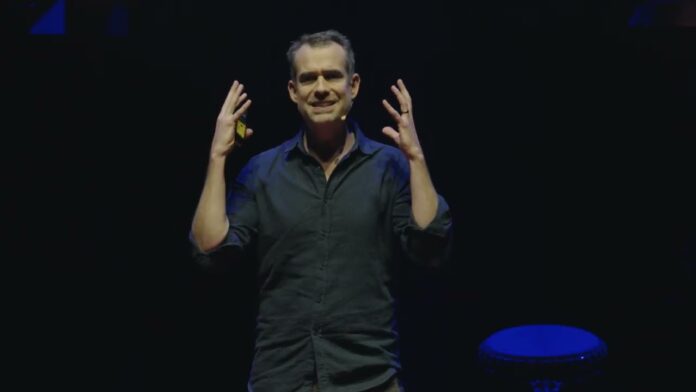Dr Chris van Tulleken shares his journey to cut out ultra-processed foods, revealing their hidden ingredients and potential health risks.
The growing awareness of the potential harms of ultra-processed foods (UPFs) has taken centre stage this year, with nutritionists and health experts increasingly calling attention to the ingredients hiding in everyday meals. Dr Chris van Tulleken, a prominent nutrition expert, has become a leading voice in this movement, sharing his personal experience of drastically reducing his consumption of UPFs.
In an insightful interview earlier this year with entrepreneur and podcast host Spencer Matthews, Dr Chris opened up about how his view of food has shifted over time. “Cutting out ultra-processed foods felt similar to a vegan cutting out meat,” he confessed, underlining the extent of the challenge when it comes to eliminating these products from daily life.
Van Tulleken’s decision was inspired by increasing evidence suggesting that UPFs, which are often packed with additives, preservatives, and ingredients unfamiliar to most consumers, could have detrimental effects on both mental and physical health. His comments come at a time when many people are reassessing their diets and seeking out alternatives to processed foods, especially in light of the growing body of research linking UPFs to obesity, heart disease, and other chronic health conditions.
A key moment in Dr Chris’s personal journey came when Matthews shared his own revelation about UPFs during their discussion. Matthews, a former Made in Chelsea star, described a typical scenario involving a seemingly simple chicken wrap. “I used to pick up a chicken wrap thinking it was a relatively healthy snack,” Matthews explained. “It was about 450 calories – chicken, mayonnaise, lettuce, and a tortilla – so I thought it was fine.”
However, after reading Dr Chris’s book, Matthews decided to check the label and was shocked by what he found. “I flipped it over and saw there were like 40 ingredients in this thing, a bunch of stuff I’d never heard of,” Matthews said, recalling how this eye-opening moment made him rethink his choices. Many of the ingredients in such foods are often industrially produced, far removed from the natural ingredients that consumers might expect.
Dr Chris explained that UPFs are foods that typically contain more than five ingredients, many of which are not recognisable as typical kitchen items. These foods often include preservatives, emulsifiers, flavourings, and artificial sweeteners, all designed to make the products last longer, taste better, or look more appealing. However, these additives can disrupt the body’s natural processes, leading to overconsumption and, in some cases, adverse health effects.
The rising concern over UPFs is not without reason. Studies have shown that diets high in processed foods are linked to various health issues, including weight gain, metabolic disorders, and even cognitive decline. Moreover, UPFs are often lower in essential nutrients like fibre, vitamins, and minerals, while being high in unhealthy fats, sugars, and sodium.
Dr Chris has been vocal about the importance of reducing reliance on these foods, urging the public to pay closer attention to labels and be mindful of what they are consuming. His advocacy is part of a broader push by nutritionists and public health experts to encourage a return to whole, minimally processed foods, which are more nutritious and less likely to contribute to long-term health problems.
The shift away from UPFs is part of a wider trend as consumers become more health-conscious and seek to make more informed choices. With high-profile figures like Dr Chris leading the charge, it’s clear that the conversation around food is changing, as more people start to question what exactly is in the food they eat.
For those looking to make a change, Dr Chris advises starting by cutting out the most heavily processed items, such as ready meals, sugary snacks, and fizzy drinks. Instead, opting for fresh fruits, vegetables, whole grains, and lean proteins can make a significant difference to overall health.
While eliminating UPFs entirely may be difficult in today’s fast-paced world, where convenience often trumps quality, the benefits of reducing their consumption are clear. As Dr Chris’s experience shows, even small changes can have a positive impact, helping to curb cravings, improve energy levels, and promote long-term well-being.
This growing focus on healthier eating habits reflects a wider societal shift towards prioritising nutrition and wellness, with experts like Dr Chris van Tulleken at the forefront of a movement that is likely to shape food choices for years to come.
